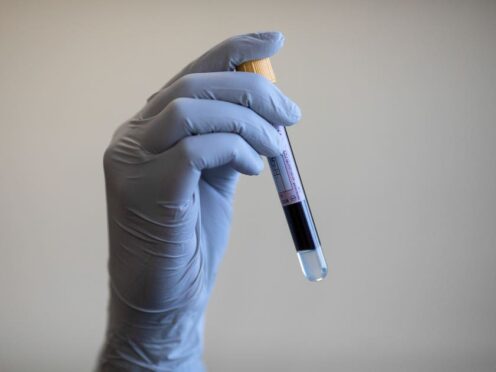
Methods of screening men for prostate cancer are set to be trialled in a bid to save thousands of lives in the UK each year.
The £42 million project, known as Transform, has been hailed as “a pivotal moment in the history of prostate cancer research” by experts.
It is also hoped the research will help men avoid harm from potentially unnecessary biopsies and treatment.
There is currently no screening programme for prostate cancer in the UK.
The trial will compare various screening methods to current NHS diagnostic processes – which can include blood tests, physical examinations and biopsies.
Initial results from Transform are expected in three years.
According to Prostate Cancer UK, which is funding the project, previous trials that used prostate-specific antigen (PSA) blood tests and biopsies to screen for the disease showed the method prevented between 8% and 20% of deaths, depending on screening regularity.
However, Transform has the potential to reduce deaths from prostate cancer by 40%, the charity said.
Figures from Cancer Research UK estimate 12,000 lives are lost to prostate cancer in the UK each year.
Dr Matthew Hobbs, director of research at Prostate Cancer UK, said: “Prostate cancer is the most common cancer without a screening programme and it’s about time we changed that.
“We know that earlier diagnosis saves lives, but previous trials haven’t been able to prove that enough men would be saved using PSA tests alone, while they did show that these old screening methods caused significant unnecessary harm to men.
“We must now prove that there are better ways to find aggressive prostate cancer that will save even more lives while causing less harm.”
The first phase of Transform will involve about 12,500 men and will assess the likes of PSA blood tests, genetic testing and a faster version of the MRI scan – known as a Prostagram – against current NHS diagnostic methods to see which performs best.
The trial’s second stage, involving up to 300,000 men, will test the most promising options from stage one of the trial.
The team will follow up with patients over at least a decade to track how screening impacted the length and quality of their lives.
Researchers are aiming to make Transform as accessible as possible, recruiting patients through GPs across the whole of the UK from next year.
At least one in 10 patients who are invited to take part will be black, as black men carry double the risk of developing prostate cancer than other men.
As well as saving lives in the UK, Dr Hobbs said the trial could also “change practice globally”, with the number of lives saved potentially reaching tens of thousands each year.
He added: “This is a pivotal moment in the history of prostate cancer research and we’re proud to be leading the way, and to be supporting some of the best researchers in the world to make it happen.”
Lead researchers on the trial are Prof Hashim Ahmed and Prof Rakesh Heer, of Imperial College London, Prof Mark Emberton and Prof Caroline Moore, of University College London, Prof Rhian Gabe of Queen Mary University of London, and Prof Ros Eeles, of the Institute of Cancer Research, London.
It has also been backed by £16 million from the National Institute for Health and Care Research (NIHR), as well as £1.5 million from Movember and support from the Freddie Green and Family Charitable Foundation.
Prof Lucy Chappell, chief executive of NIHR, said: “This important trial aims to prevent thousands of men dying each year through earlier diagnosis of one of the most common male cancers.
“Early detection through screening is crucial in improving the life chances of all men, and is particularly important for black men who are at double the risk of being diagnosed with prostate cancer.
“Our investment in this Prostate Cancer UK trial maintains our commitment to funding research that saves and improves as many UK lives as possible.”
Health minister Andrew Stephenson added: “It’s fantastic to know that more people are surviving cancer in the UK than ever, but we know that’s partly down to early diagnosis.
“Screening for the most common cancer in men is complex but we’re backing groundbreaking trials like this to improve diagnostic processes and save thousands more lives.
“Alongside backing cutting-edge research, we are helping more people get diagnosed earlier for cancer and other conditions by rolling out additional tests, checks and scans at 160 locations across England through our community diagnostics centres programme.”

Enjoy the convenience of having The Sunday Post delivered as a digital ePaper straight to your smartphone, tablet or computer.
Subscribe for only £5.49 a month and enjoy all the benefits of the printed paper as a digital replica.
Subscribe